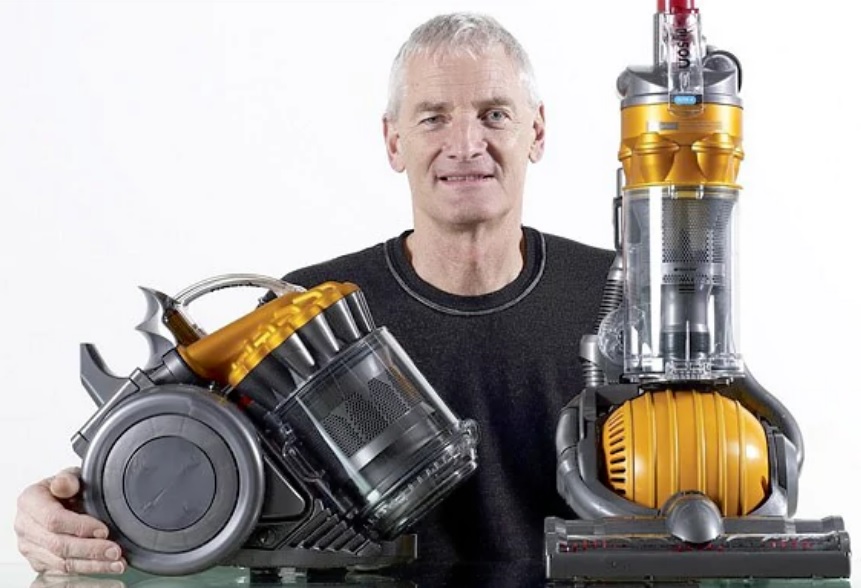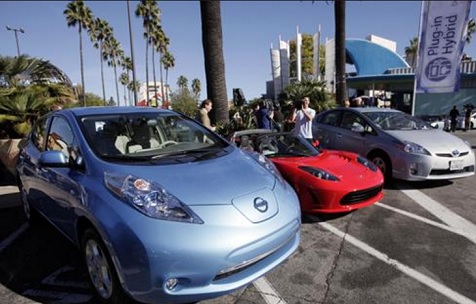Dyson launching EV: British company Dyson, best known for home appliances such as its bagless vacuum cleaners, will be launching an electric car by 2020. The company will be  investing about $2.7 billion in solid-state battery technology and designing the EV. It will be put together by a team of more than 400 employees, said founder James Dyson. It won’t be an affordable Tesla Model 3, Chevy Bolt, and Nissan Leaf competitor. Dyson said it will be an expensive car, and those interested will have to “wait and see” what it’s going to look like. Rumors have been floating about the company getting into the EV race for a few years now, which was clarified last year in a government document filing. The company’s sales have grown in recent years as it expanded its presence in Asia. That will be a big part of its EV launch. “We see a very large market for this car in the far east,” Dyson said.
investing about $2.7 billion in solid-state battery technology and designing the EV. It will be put together by a team of more than 400 employees, said founder James Dyson. It won’t be an affordable Tesla Model 3, Chevy Bolt, and Nissan Leaf competitor. Dyson said it will be an expensive car, and those interested will have to “wait and see” what it’s going to look like. Rumors have been floating about the company getting into the EV race for a few years now, which was clarified last year in a government document filing. The company’s sales have grown in recent years as it expanded its presence in Asia. That will be a big part of its EV launch. “We see a very large market for this car in the far east,” Dyson said.
Ford working with Lyft: Ford will be partnering with ride-hailing company Lyft to share information supporting acceleration of a commercial self-driving car service launch. It’s the third alliance the startup has formed following last year’s investment by General Motors; Waymo and autonomous software and hardware firm Drive.ai forged alliances with Lyft earlier this year. Lyft wants to be the first ride-hailing company to deploy self-driving cars by a major automaker, according to the company. Pilot programs should be launched fairly soon and fully operational by 2021. Ford said the partnership will be make self-driving rides available quickly and safely to customers using the mobile app. Ride-hailing giant Uber had been investing heavily in autonomous vehicle testing through automaker alliances. That’s been sidelined since explosive scandals have broken this year with co-founder and CEO Travis Kalanick being replaced by former Expedia CEO Dara Khosrowshahi. Lyft is well positioned for growth in mobility services and deploying self-driving mobility services from the trial phase through commercial deployment.
California may ban fossil-fuel vehicles: California may join up with China, the UK, France, and Norway in banning fossil-fuel powered vehicles. Mary Nichols, chairman of the California Air Resources Board, told Bloomberg Friday that Gov. Jerry Brown is interested in  exploring barring the sale of vehicles in California with internal combustion engines. The earliest ban would be a decade away and ties into the state’s campaign to battle climate change. The move would send shockwaves to automakers, which have already been working on meeting the state’s zero emission vehicle mandates in the world’s largest auto market. A more pressing issue for California has been how the Trump administration will be ruling on the fuel economy and emissions standards, and if California’s ZEV guidelines will be included.
exploring barring the sale of vehicles in California with internal combustion engines. The earliest ban would be a decade away and ties into the state’s campaign to battle climate change. The move would send shockwaves to automakers, which have already been working on meeting the state’s zero emission vehicle mandates in the world’s largest auto market. A more pressing issue for California has been how the Trump administration will be ruling on the fuel economy and emissions standards, and if California’s ZEV guidelines will be included.
